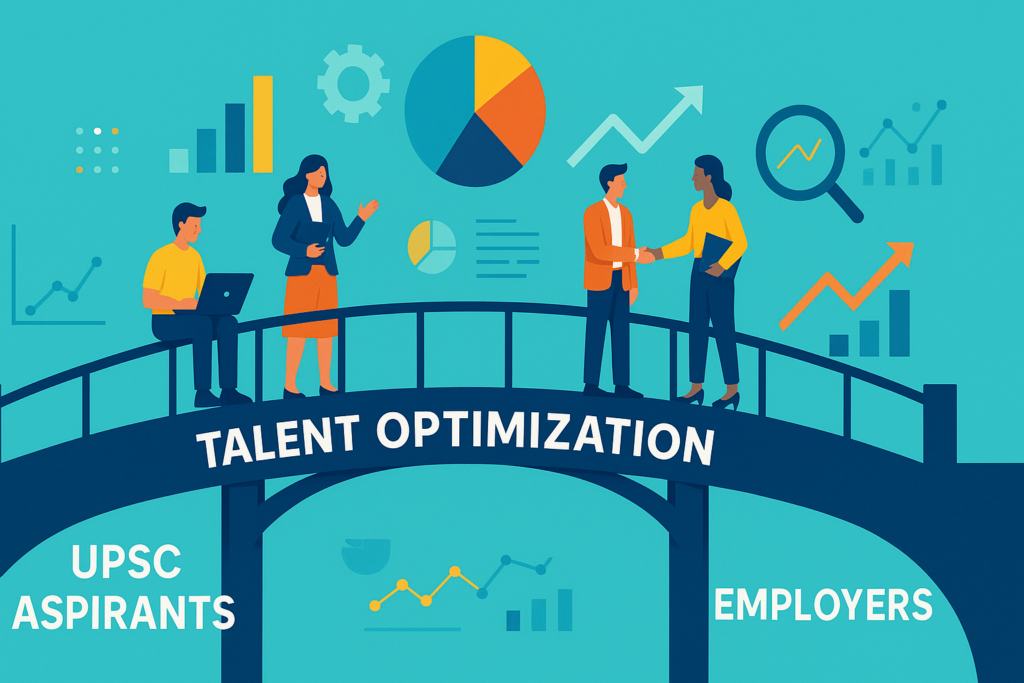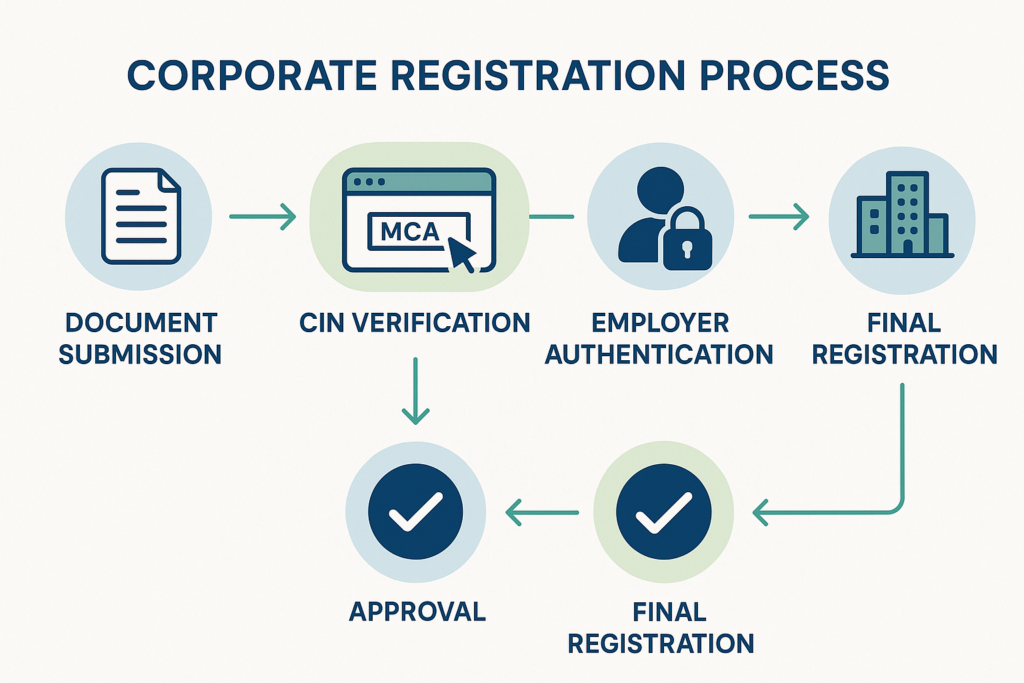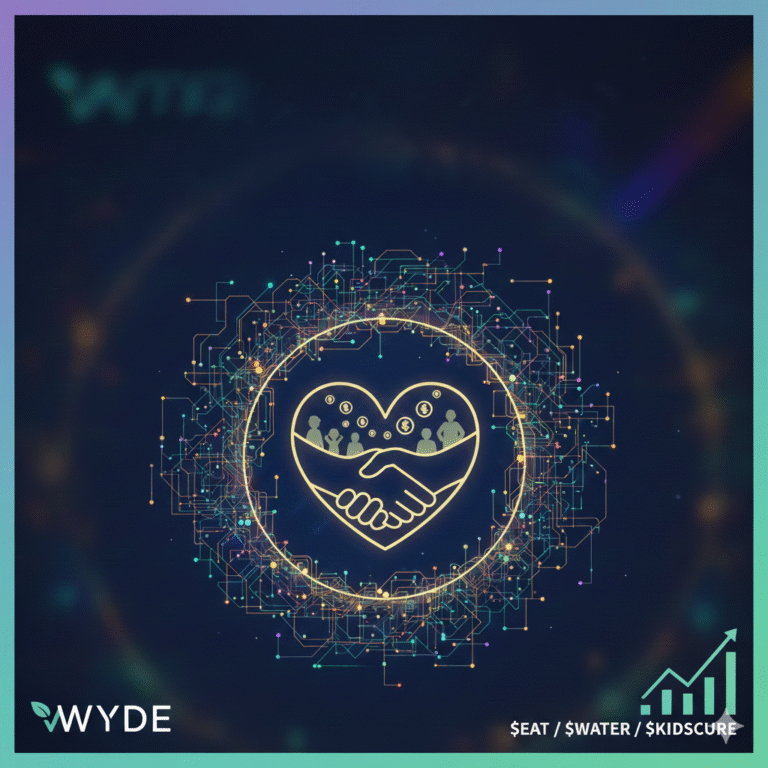Key Highlights
- Over 10,000 verified candidates from prestigious UPSC exams who cleared all stages but narrowly missed final merit lists now accessible to employers
- Secure CIN-based registration allows verified government ministries, PSUs, and private companies to access pre-vetted talent pools through corporate identification numbers
- Evolution from Public Disclosure Scheme (PDS) launched in 2018 to comprehensive digital platform expanding beyond government to include private sector opportunities
- Multi-exam coverage includes Civil Services, Engineering Services, Indian Forest Service, CAPF, Combined Medical Services, CDS, and Geo-Scientist examinations
- Talent optimization breakthrough demonstrates government’s responsive governance approach, maximizing human capital deployment while bridging public-private recruitment gaps

The Genesis of Pratibha Setu
Prime Minister Narendra Modi’s announcement of Pratibha Setu during the 125th episode of Mann Ki Baat represents a paradigm shift in how India approaches talent optimization and human capital management. The platform, whose name translates to “Bridge of Talent,” acknowledges a critical gap in the country’s recruitment ecosystem where thousands of highly capable individuals fall through the cracks despite demonstrating exceptional merit.
The initiative builds upon the Public Disclosure Scheme (PDS) introduced in August 2018, which initially provided basic disclosure of non-recommended candidates’ information. However, Pratibha Setu transforms this passive disclosure into an active talent marketplace, complete with secure login systems, verified employer access, and comprehensive candidate profiles.
PM Modi emphasized the reality faced by UPSC aspirants: “There are thousands of such candidates who are very capable but are unable to reach the final list by a small margin”. These candidates often invest 3-5 years in preparation, representing a significant opportunity cost both for individuals and the nation’s human capital development. thesecretariat
Understanding the Platform Architecture
Pratibha Setu operates as a sophisticated digital talent bridge connecting verified employers with pre-vetted candidates through a secure, login-based portal system. The platform’s architecture ensures data privacy, employer verification, and candidate consent at every step of the process.
Candidate Inclusion Process
The platform maintains a comprehensive database of “non-recommended willing candidates” who have successfully cleared multiple examination stages. These individuals represent the top percentile of India’s competitive examination ecosystem, having passed through rigorous screening processes that include preliminary examinations, main examinations, and personality tests.
Participation remains voluntary, with candidates providing explicit consent during their UPSC application process. This opt-in model ensures that only those genuinely interested in alternative career paths are included in the database.
Employer Verification System
The platform employs robust verification mechanisms to ensure employer legitimacy and candidate security. Private organizations must register using their Corporate Identification Number (CIN), which undergoes verification through the Ministry of Corporate Affairs (MCA) portal.
Government entities, including central ministries, Public Sector Undertakings (PSUs), and autonomous bodies, receive direct login credentials from UPSC, streamlining their access while maintaining security protocols.

Data Access and Privacy Framework
Verified employers gain access to soft biodata including educational qualifications, exam performance details, and contact information. However, the platform maintains strict data privacy standards, ensuring that sensitive personal information remains protected.
The system includes features such as wishlisting, shortlisting, selection interfaces, and rejection tracking, providing employers with comprehensive candidate management tools.
Comprehensive Examination Coverage
Pratibha Setu encompasses candidates from India’s most prestigious competitive examinations, ensuring a diverse talent pool across multiple sectors and specializations:
Core Examinations Included
Civil Services Examination (CSE): The flagship examination producing India’s administrative leaders, with candidates demonstrating expertise in governance, policy analysis, and public administration.
Engineering Services Examination: Technical professionals with proven capabilities in infrastructure development, project management, and engineering innovation.
Indian Forest Service (IFS): Environmental specialists with deep understanding of conservation, sustainable development, and natural resource management.
Central Armed Police Forces (CAPF): Security professionals with expertise in law enforcement, internal security, and crisis management.
Combined Medical Services (CMS): Healthcare professionals with comprehensive medical knowledge and public health understanding.
Combined Defence Services (CDS): Military professionals with leadership capabilities and strategic thinking skills.
Indian Economic Service/Statistical Service: Economics and statistics experts with policy research and data analysis capabilities.
Combined Geo-Scientist Examination: Geological and geophysical experts with environmental assessment and resource exploration skills.
Exclusions and Limitations
The platform specifically excludes candidates from National Defence Academy (NDA) and Naval Academy (NA) examinations, as well as Limited Departmental Competitive Examinations (LDCEs) such as CBI (DSP), CISF (executive), and Section Officer/Stenographer positions.
Talent Optimization and Human Capital Management
Pratibha Setu represents a breakthrough in talent optimization, addressing the critical challenge of human capital wastage in India’s competitive examination ecosystem. The platform recognizes that clearing UPSC examinations requires exceptional analytical abilities, comprehensive knowledge, and sustained dedication—qualities highly valued across sectors.
Addressing Skill Gaps in Industry
Indian organizations face significant skill shortages, with emerging technology roles reporting skill gaps as high as 45% by 2015. Pratibha Setu provides access to candidates with proven analytical thinking, problem-solving capabilities, and comprehensive knowledge bases developed through rigorous examination preparation.
The platform enables organizations to reduce time-to-hire by accessing pre-vetted candidates, improve quality of hires through merit-based selection, and enhance employee engagement by offering meaningful career opportunities to high-potential individuals.
Economic Impact and Resource Optimization
The initiative addresses a significant economic inefficiency where talented individuals spend their most productive years repeatedly attempting competitive examinations. Pratibha Setu provides alternative career pathways, reducing the opportunity cost associated with prolonged examination preparation.
For employers, the platform offers access to a talent pool that has already undergone one of the world’s most rigorous selection processes, effectively bypassing initial screening stages and reducing recruitment costs.
Registration Process and Platform Access
For Candidates
Candidate registration occurs automatically through the existing UPSC application process. Aspirants provide explicit consent during their examination application, indicating willingness to have their profiles shared with verified employers.
No separate registration is required on the platform itself, as UPSC compiles the database based on examination results and consent preferences. Candidates retain control over their participation and can opt out if their circumstances change.
For Employers
Government organizations receive login credentials directly from UPSC following internal verification processes. Private companies must complete a more comprehensive registration involving CIN verification and email authentication through MCA records.
The registration process includes:
Step 1: Visit the UPSC Pratibha Setu portal under the PDS division
Step 2: Click “Register your organization” and submit CIN and email details
Step 3: Complete OTP verification sent to registered email/mobile linked with MCA
Step 4: Await UPSC approval and receive login credentials
Step 5: Access the portal, browse candidates, apply filters, and download biodata
Success Stories and Industry Adoption
Since its evolution from the Public Disclosure Scheme, the platform has demonstrated significant traction across sectors. 113 organizations have already registered on the platform, with many more expressing interest in accessing this pre-vetted talent pool.
Private Sector Integration
The expansion to include private sector organizations marks a significant evolution from the original PDS, which was limited to government entities and PSUs. This broader scope increases opportunities for candidates while providing private companies with access to exceptional talent that might otherwise be unavailable through traditional recruitment channels.
Corporate participation spans multiple sectors including consulting, policy research, technology, financial services, and manufacturing, demonstrating the versatility of skills developed through UPSC preparation.
Government and PSU Engagement
Central ministries, Public Sector Undertakings, and autonomous bodies continue to leverage the platform for specialized recruitment needs. The pre-vetted nature of candidates significantly reduces screening time while ensuring high-quality hires for policy-oriented roles.
Policy Implications and Responsive Governance
Pratibha Setu exemplifies responsive governance by addressing a systemic inefficiency in India’s talent management ecosystem. The initiative demonstrates the government’s policy flexibility and innovation in public service delivery.
Bridging Public-Private Collaboration
The platform creates unprecedented public-private collaboration in talent deployment, enabling knowledge transfer between sectors and maximizing the return on investment in competitive examination processes.
This collaboration opens pathways for aspirants into diverse roles including policy research, administrative support, corporate strategy, consulting, and technical positions, significantly expanding career options beyond traditional civil services.
Long-term Human Capital Development
The initiative aligns with India’s broader human capital development goals by ensuring that investment in competitive examination preparation translates into productive employment outcomes. This approach reduces brain drain, optimizes talent deployment, and enhances economic productivity.
Digital Innovation in Public Service
Pratibha Setu showcases how digital platforms can transform traditional government processes, creating efficient, transparent, and user-friendly solutions for complex challenges.
Technology Integration
The platform employs advanced filtering systems, secure data management, and user-friendly interfaces to facilitate efficient talent matching. Features include examination-wise filtering, geographical preferences, subject expertise, and performance metrics.
Mobile compatibility and cloud-based architecture ensure accessibility across devices and locations, enabling employers to access talent pools efficiently regardless of their technological infrastructure.
Security and Privacy Framework
Multi-layer security protocols protect candidate data while ensuring employer verification. The CIN-based verification system prevents unauthorized access while the consent-based participation model respects candidate privacy preferences.
Data encryption, secure login systems, and audit trails maintain platform integrity while enabling transparent and accountable recruitment processes.
Future Expansion and Enhancement
The success of Pratibha Setu opens possibilities for expansion to additional competitive examinations and enhanced functionality based on user feedback and technological advancement.
Potential Examination Inclusion
Future iterations might include candidates from state public service commissions, banking examinations, railway recruitment, and specialized technical examinations, creating a comprehensive national talent database.
Technology Enhancement
Artificial Intelligence integration could enable automated candidate matching, skill assessment, and predictive analytics for improved employer-candidate compatibility. Blockchain technology might enhance data security and verification processes.
Challenges and Considerations
While Pratibha Setu represents significant progress, certain challenges require ongoing attention to ensure platform effectiveness and candidate welfare.
Employer Education and Awareness
Many employers, particularly in the private sector, may not fully understand the caliber of UPSC candidates or how to effectively integrate them into organizational structures. Awareness campaigns and employer education programs could enhance platform utilization.
Candidate Expectation Management
UPSC candidates often have specific career expectations and compensation requirements based on their preparation investment. Expectation alignment between candidates and employers remains crucial for successful placements.
Geographic and Sectoral Distribution
Ensuring equitable opportunities across different geographical regions and industry sectors requires proactive outreach and targeted recruitment drives to prevent concentration in major metropolitan areas.
Global Best Practices and Innovation
Pratibha Setu represents a unique approach to talent optimization that could serve as a model for other countries facing similar challenges in human capital management. The platform’s voluntary participation, employer verification, and multi-sector integration create a balanced ecosystem benefiting all stakeholders.
International Relevance
Countries with centralized competitive examination systems might adopt similar platforms to optimize talent deployment and reduce human capital wastage. The digital platform approach offers scalability and adaptability to different national contexts.
Conclusion
Pratibha Setu transforms the narrative around UPSC preparation from a winner-takes-all competition to a talent development pipeline benefiting the entire nation. By creating alternative pathways for exceptional candidates, the platform ensures that years of preparation and demonstrated merit translate into meaningful career opportunities.
The initiative exemplifies 21st-century governance, leveraging digital innovation to address systemic challenges while creating value for individuals, organizations, and society. As PM Modi emphasized, the platform ensures that talented youth don’t have to start from scratch but can build upon their proven capabilities in diverse professional contexts.
Pratibha Setu represents more than a recruitment platform—it’s a national talent optimization system that recognizes the multifaceted value of competitive examination preparation while creating bridges between different sectors of the economy. The platform’s success will likely inspire similar innovations in talent management, education policy, and public service delivery.
For UPSC aspirants, Pratibha Setu offers hope and opportunity beyond traditional success metrics. For employers, it provides access to pre-vetted talent with exceptional analytical capabilities and comprehensive knowledge. For India, it represents a strategic approach to human capital optimization that could significantly enhance economic productivity and innovation capacity.
The platform’s evolution from Public Disclosure Scheme to comprehensive talent bridge demonstrates the government’s commitment to continuous improvement and responsive policy-making. As more organizations discover the value of UPSC-vetted talent and more candidates benefit from alternative career pathways, Pratibha Setu is poised to become a transformative force in India’s employment ecosystem.









+ There are no comments
Add yours